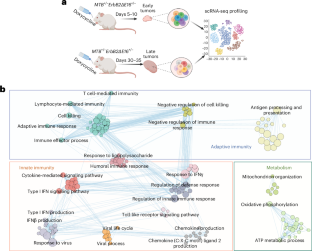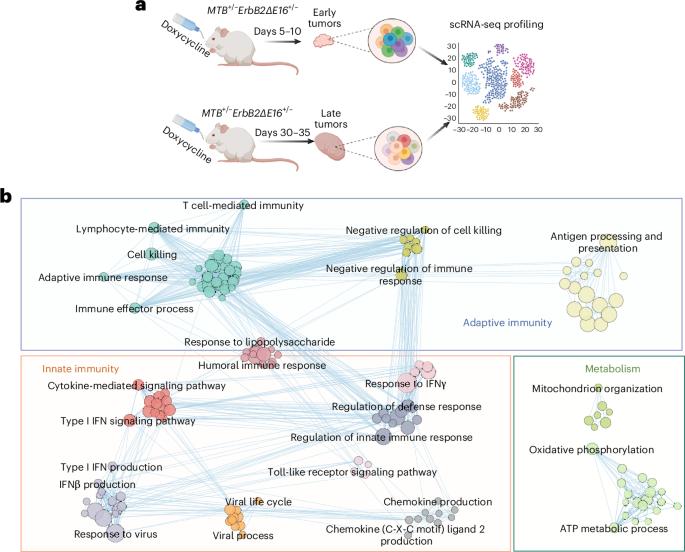抑制 DNA 甲基化可逆转肿瘤对免疫识别的抑制
IF 27.7
1区 医学
Q1 IMMUNOLOGY
引用次数: 0
摘要
新发癌症的肿瘤细胞会改变其基因表达以避免免疫控制,这一过程被称为免疫编辑。我们发现,在基因工程小鼠中诱导癌基因后,乳腺肿瘤的全基因组基因表达变化主要是先天性和适应性免疫基因的表观遗传抑制。DNA甲基转移酶抑制剂可逆转肿瘤的免疫逃避。本文章由计算机程序翻译,如有差异,请以英文原文为准。


Emerging tumor repression of immune recognition is reversed by inhibiting DNA methylation
Tumor cells in emerging cancers modify their gene expression to avoid immune control, a process known as immunoediting. We found that genome-wide gene expression changes in breast tumors after oncogene induction in genetically engineered mice were dominated by the epigenetic repression of innate and adaptive immune genes. Immunoevasion by tumors was reversed by a DNA methyltransferase inhibitor.
求助全文
通过发布文献求助,成功后即可免费获取论文全文。
去求助
来源期刊

Nature Immunology
医学-免疫学
CiteScore
40.00
自引率
2.30%
发文量
248
审稿时长
4-8 weeks
期刊介绍:
Nature Immunology is a monthly journal that publishes the highest quality research in all areas of immunology. The editorial decisions are made by a team of full-time professional editors. The journal prioritizes work that provides translational and/or fundamental insight into the workings of the immune system. It covers a wide range of topics including innate immunity and inflammation, development, immune receptors, signaling and apoptosis, antigen presentation, gene regulation and recombination, cellular and systemic immunity, vaccines, immune tolerance, autoimmunity, tumor immunology, and microbial immunopathology. In addition to publishing significant original research, Nature Immunology also includes comments, News and Views, research highlights, matters arising from readers, and reviews of the literature. The journal serves as a major conduit of top-quality information for the immunology community.
 求助内容:
求助内容: 应助结果提醒方式:
应助结果提醒方式:


